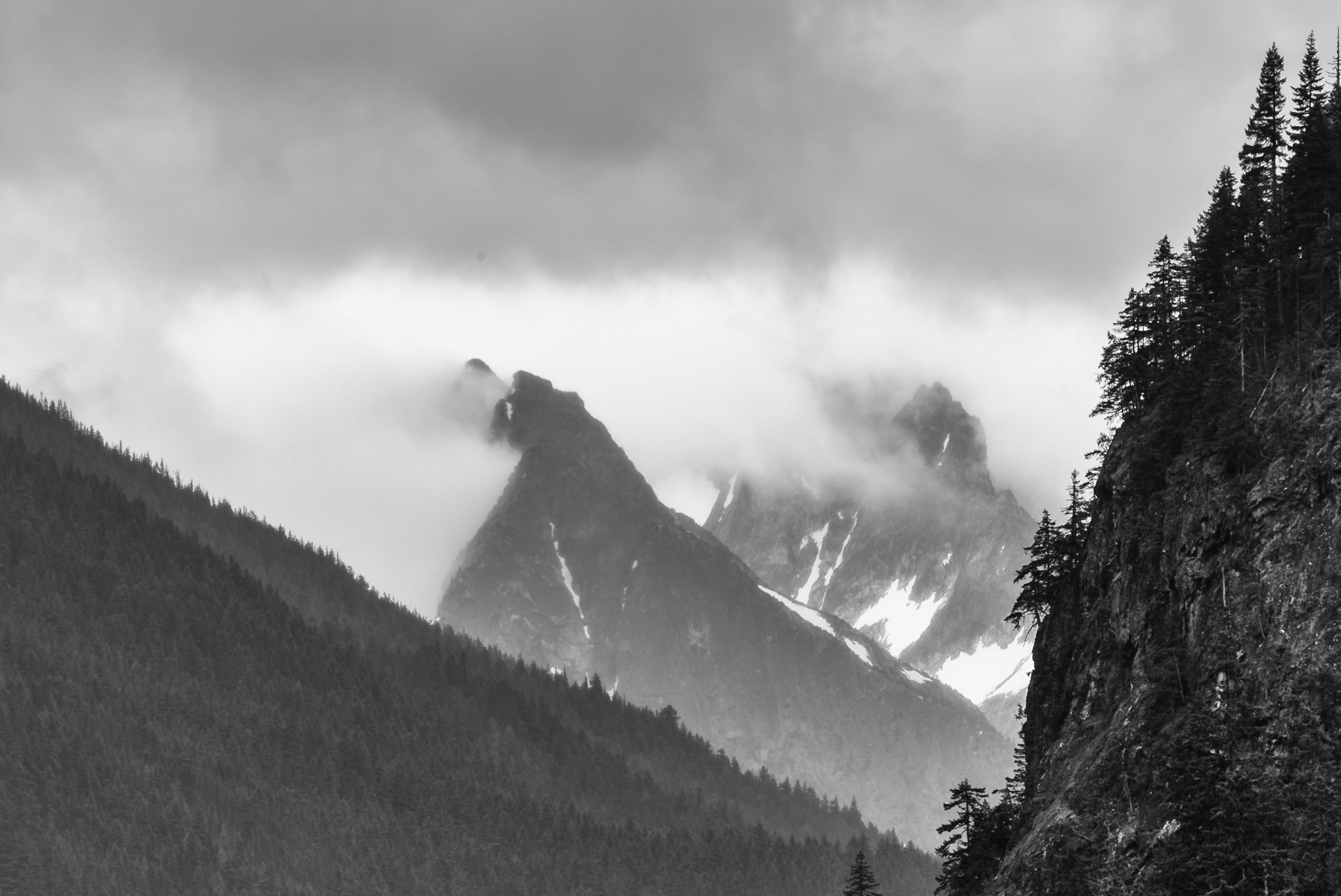
Loo-wit by Claire Galford
In the ancient days, even before our kind existed, the gods walked the face of the Earth. They did as they pleased, making, destroying and reshaping the world, living out their rivalries, adventures and loves, oblivious to other living things. Their vast life spans made them seem immortal, even though they too eventually would fall to Time.
They had their moments of glory and tragedy and then rested until they roused themselves again, one by one. And while they rested, they took the form of great snow-capped volcanoes, so vast and high that they created their own weather and shaped the Earth around them. During their sleeps, mankind and other creatures largely forgot how mighty were the gods that lived among them. But the Native American tribes near the Great River, with their longer collective memory, feared the ancient ones and avoided going near them, no matter how long they had been quiet.
Among the great gods were two brothers, Wy’east and Klickitat. They grew into their full selves together, played, quarreled, fought and loved each other, as brothers are wont to do.
After Wy’east and Klickitat had lived many, many years and reached great stature, a goddess appeared near them, the lovely Loo-wit, among the most beautiful of all the gods throughout the world with her perfect symmetry and glittering radiance.
Both Wy’east and Klickitat fell deeply in love with Loo-wit. They strived to catch her attention and favor. Soon, they became jealous of each other. Each wished to be rid of his rival, notwithstanding, or maybe because they were brothers.
Finally, the brothers could no longer restrain themselves and fought a terrible battle to decide which one would win Loo-wit. They roared and cast great boulders, blew down ancient forests, made the earth shake and spewed lava flows that burned, melted and buried everything in their paths. The force of their fight made the Bridge of the Gods over the Great River buckle and collapse, separating the brothers on opposite sides and ending their ruinous war.
The fall of the Bridge of the Gods left Loo-wit on the north side of the Great River with Klickitat, both of them isolated from Wy’east.
But the beautiful goddess Loo-wit loved Wy’east and not Klickitat.
Loo-wit moved off toward the west away from Klickitat, where she could listen to the rushing of the Great River and hear the stormy Ocean. Loo-wit’s tears created mighty rivers—named the Lewis, the Kalama and the Toutle by humans—that flowed down her flanks into the Great River and from there to the Ocean. She dressed herself in the whitest-white glaciers glinting in the sun, and wore skirts of green boughed cedars, firs and tamaracks, embroidered with manzanita, mountain azaleas, mosses and ferns. Her ceaseless winds blew willowy clouds of snow from her ridges into the skies. She hoped Wy’east and Klickitat also felt the terrible sorrow and loneliness she would carry always.
But beneath her icy beauty, the grief and anger inside Loo-wit grew. How dare Wy’east and Klickitat think they could fight for the right to claim her or that anyone but Loo-wit herself would decide who would be her mate!
Finally, Loo-wit could stand it no longer. Her north face suddenly crumpled inward then slid downward in the largest avalanche in human history. Instantly, she laid waste to the Earth around her, vaporizing all life within seventeen miles, including fifty-seven humans, releasing her rage in a great eruption one hundred times more powerful than the bomb dropped on Hiroshima and heard hundreds of miles away in British Columbia and Saskatchewan. Roiling clouds of superheated ash, looking like an atomic bomb explosion, rose sixteen miles high, drifted to the east and turned day into night in Yakama and Spokane and all points in between. Red-hot lava flowed down her sides, liquefying stone and ash and sending a slurry of mud, old growth trees, boulders, glacial ice, houses and trucks roaring down her drainages at eighty miles an hour, destroying bridges, buildings, roads, closing the highway that humans had constructed along the Great River and filling it with volcanic silt. Heedless of her own beauty, she destroyed the top third and the north face of her mountain form and turned everything around her into a hellish landscape worthy of Dante’s Inferno. In every way, Loo-wit showed how helpless and insignificant humans and other living things are alongside the might of the ancient gods.
For months, Loo-wit threw out clouds of ash and rock and reminded humans of her anger with swarms of earthquakes.
But despite her great power, she could not change the course of the Great River to bring Wy’east to her. The two lovers were doomed to be apart forever.
And so Loo-wit rests and gathers her strength as the rage within her mounts again and she builds a new dome inside her caldera.